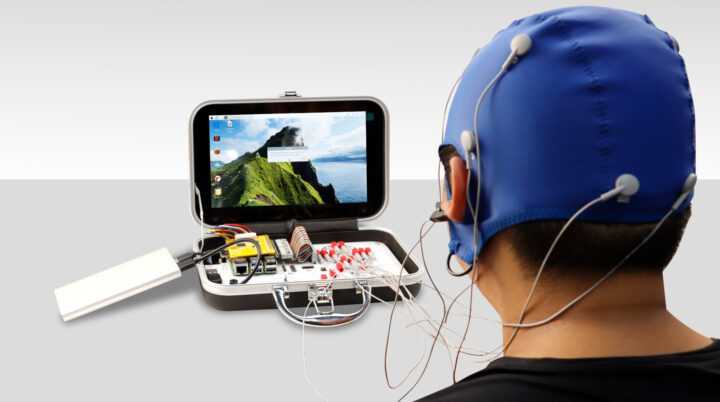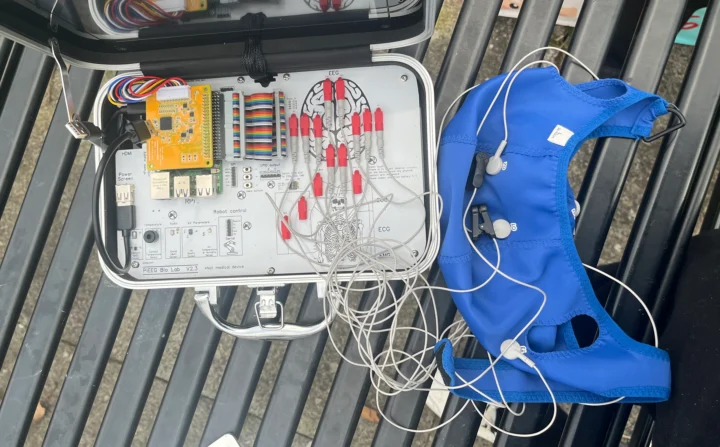Yesterday we wrote about using quantum sensors for brain-computer interfaces (BCI) and other biomedical applications. But that’s the future, and if you want to experiment with brain-computer interface technology and bioscience, the PiEEG kit has everything you need to get started, with all components fitting in a suitcase easy to carry around between your home and university or school.
The bioscience home lab is based on the PIEEG Shield for Raspberry Pi introduced in 2023, and features a Raspberry Pi 5 8GB, a 9-inch display, a sensor board, EEG electrodes and cables for brainwave measurement, and electrodes for EMG (muscles), EKG (heart), and EOG (eye) signal recording.
The PiEEG kit is comprised of the two main custom boards with the following specifications/features:
- PiEEG Shield on top of the Raspberry Pi 5
- ADC – Texas Instruments ADS1299 Analog-to-Digital Converter for biopotential measurements
- Host interface – 40-pin GPIO header with SPI protocol with a frequency from 250 SPS to 16 kSPS and a resolution of 24 bits per channel
- 8x channels for connecting wet or dry electrodes
- Programmable signal gain – 1, 2, 4, 6, 8, 12, 24
- Ability to measure impedance
- Common-Mode Rejection Ratio CMRR – 120
- Internal noise – 0.4 μV
- External noise – 0.8 μV
- Signal-to-noise ratio (SNR) – 130 dB
- Expansion
- 3x free pins for connecting external objects (ground and Raspberry Pi channel)
- 33x spare pins from the Raspberry Pi GPIO can be used for various tasks, like connecting external devices
- Misc – LEDs for power indication and ADS1299 connection indication
- PiEEEG Bio Lab board
- Bio signals
- 10 channels for EEG measurements used for brain-computer interfaces (BCI).
- 4 channels for EOG, ECG, EMG .
- Sensors
- SpO2 sensor
- Contact temperature sensor
- Sound sensor
- Air quality sensor
- Air temperature and humidity sensor
- Expansion
- SPI and I2C connectors
- 40-pin GPIO header connected to Raspberry Pi header
- GPIO output header with 6x GPIOs
- Remote robot control port
- Misc – 3x user buttons
- Power cables for Raspberry Pi and the display
- Bio signals
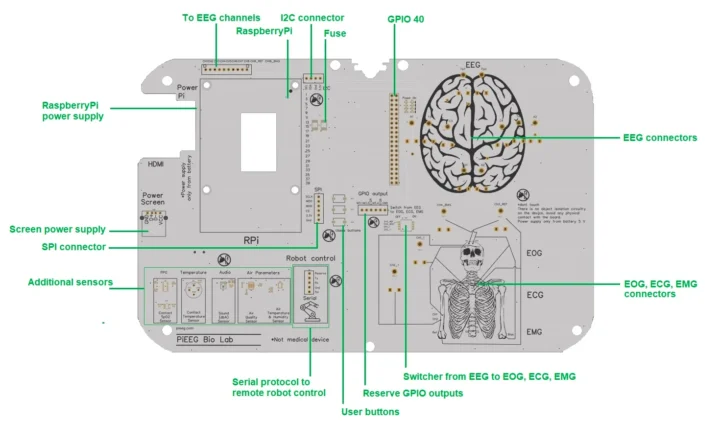
The Raspberry Pi 5-based bioscience home lab benefits from the existing software for the PiEEG Shield with open-source software with real-time raw data acquisition and filtering, and a Python SDK for integration into projects. Ildar Rakhmatulin, research associate in neurotechnology systems at the University of Edinburgh and Founder of PiEEG, also wrote a Python-based signal processing course for people wanting to learn while using their own biodata.
You’ll find some hardware resources, documentation, and software on GitHub, but I’m not sure where to find the course materials. Some resources will only be released after the crowdfunding campaign is over. The video embedded at the end of this post also offer a good overview of the capabilities of the system.
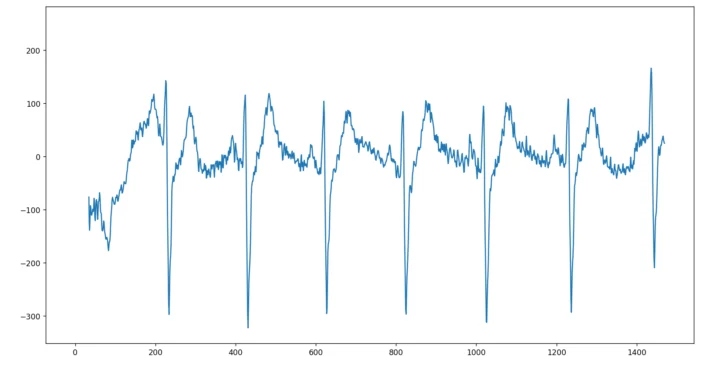
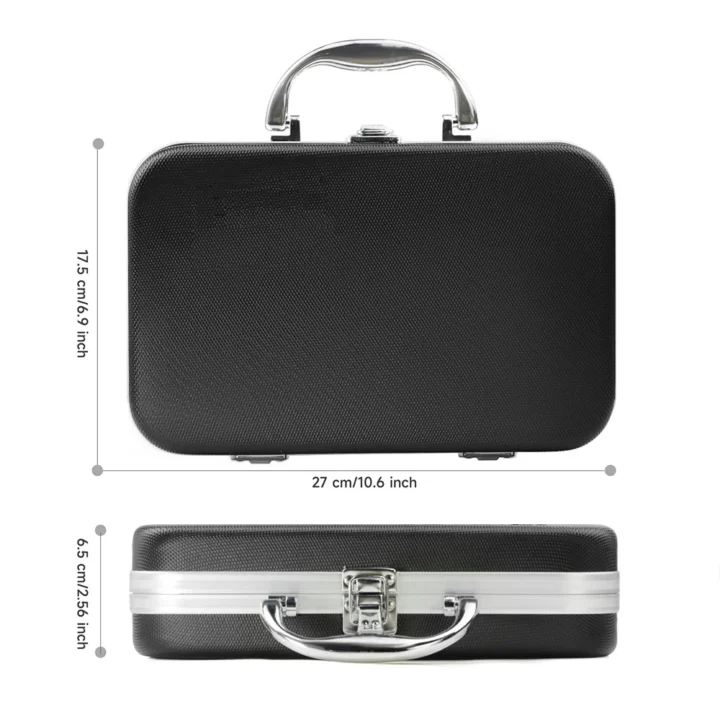
Ildar launched the PiEEG Kit on Indiegogo with a 10,000 GBP funding target (about $12,800 US). The complete PiEEG Kit requires a $1,120 US pledge with all accessories, software, and Python course. There’s no information about the shipping fee, but we do know rewards are expected to ship by September 2025. Note that the PiEEG Kit is not a medical device, and is suitable for education and research.

Jean-Luc started CNX Software in 2010 as a part-time endeavor, before quitting his job as a software engineering manager, and starting to write daily news, and reviews full time later in 2011.
Support CNX Software! Donate via cryptocurrencies, become a Patron on Patreon, or purchase goods on Amazon or Aliexpress


